Neurologic
STEP Therapies is well-known for its specialized management and treatment of Multiple Sclerosis. However, we are equipped to treat most neurological conditions requiring physical therapy. Presentation of neurologic conditions varies depending on the cause, but some common symptoms include:
- Gait abnormality
- Imbalance
- Pain
- Muscle weakness
- Muscle tightness
- Spasticity
- Dizziness
- Impaired coordination
- Foot drop
- Fatigue
* FUNCTION * INDEPENDENCE * MOBILITY * SAFETY *
How do we do it?
The therapists at STEP take an individualized approach to each patient, identifying functional problems and the factors that contribute to them. We seek to cater our treatment in order to address specific impairments and functional limitations with the overall goal of making you FEEL BETTER and MOVE BETTER! Our staff has the education, knowledge and ability to identify specific problems as well as the means to address them.
Specific to MS, we have several MS-Certified Specialists (MSCS) on staff, which greatly enhances our understanding and treatment of the effects of the disease. We are also partners with the MS Society – Upper Midwest Chapter so we have access to a variety of resources that are available to help you.
We utilize many different strategies here, each based on your specific needs. Some examples include:
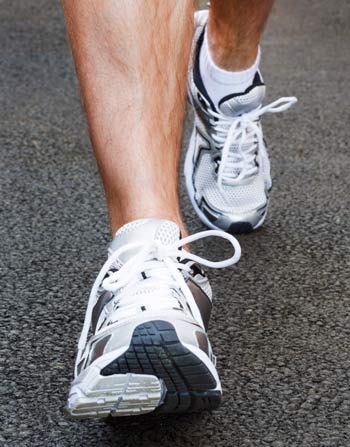
Gait Training:
We assess your walking pattern and determine where and why specific abnormalities are occurring and address them accordingly. Whether it is weakness, tightness, spasticity or balance, many factors can affect how we walk and move. Our goal is to improve your gait pattern in order to move faster, safer and with less compensatory movements. Even if you use an assistive device such as a cane or walker, your gait can still improve! Better walking leads to changes in safety, independence, activity participation and overall quality of life. With our help, one smaller step will lead to a bigger step in the right direction! After all, it is in our name!
Neuromuscular Re-Education:
Balance and control… two components of human movement that can significantly affect your movement, confidence and overall mobility. Improving these will lead to safer and more controlled movement, and ideally keep you on your feet! We seek to identify specific deficits and utilize strategies to help improve them. With our knowledge, techniques and equipment, we can help you take control of your movement!
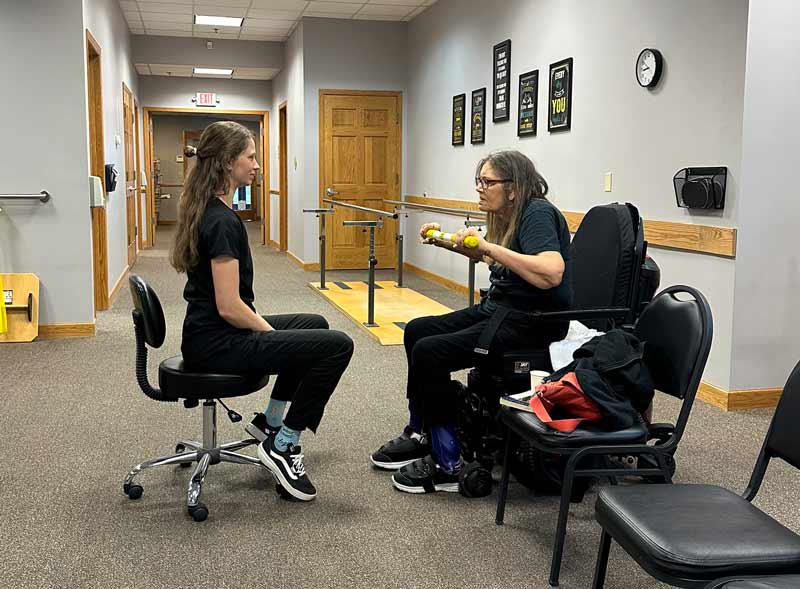
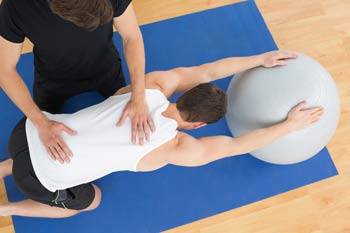
Corrective Exercise:
Includes specific stretching, strengthening and other motor control strategies. Corrective exercises that are incorporated into physical therapy treatment are tailored to your condition and directed towards specific goals and treatment response. Tailored exercise coincides with functional movement such as walking and balance. For example, if certain muscles are too weak, too tight or not functioning correctly, it can affect how your body moves and operates. Physical therapists are exercise and movement specialists who know how, when and why to perform certain exercises to gain a desired response.
Specialized Equipment:
We have several specialized pieces of equipment that we utilize in clinic to help expedite our patients’ recovery. They include an AlterG anti-gravity treadmill, body-weight support harness treadmills, and Biodex balance platform, to name a few. We also have parallel bars, a standing frame and a whole multitude of balls, boards, bands, weights and other rehab equipment.
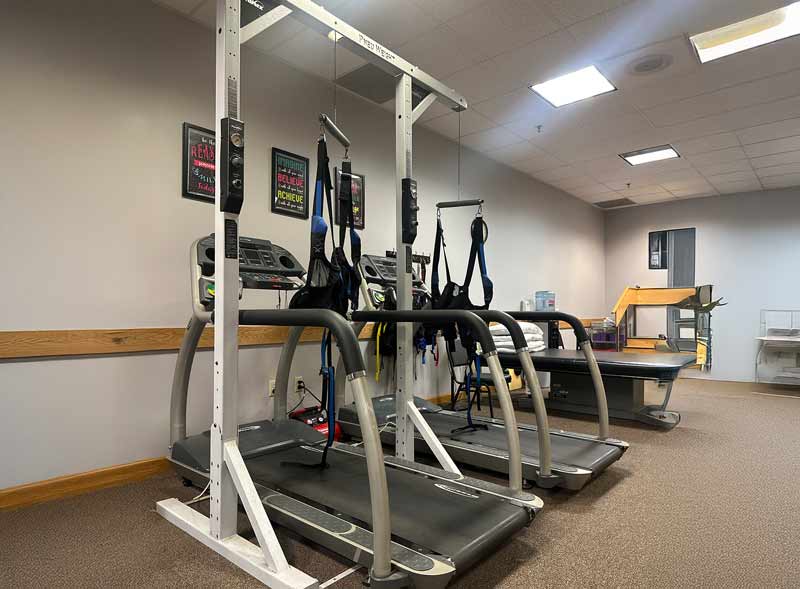
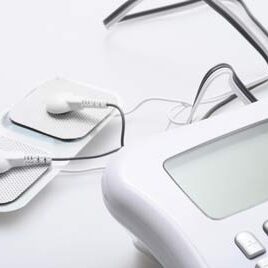
Neuro-Muscular Electrical Stimulation (NMES):
NMES is a modality used to help people with weak or deconditioned muscles improve the quality of muscle contraction. One of the most common uses is to attach it to the tibialis anterior muscle in the front of the lower leg to help reduce foot drop. This can be done sitting in a chair or coordinate it with your walking pattern.
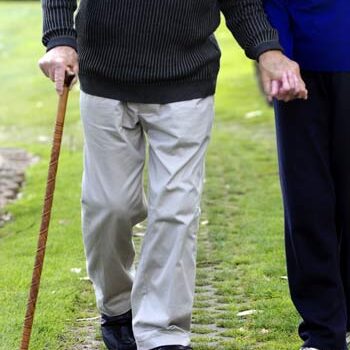
Adaptive Equipment/Assistive Devices:
We can help determine which, if any, assistive devices (i.e. cane, walker, wheelchair) may benefit your safety and mobility while walking as well as train you in the best way to use it. We can also assist you in obtaining orthoses or braces (i.e. AFO, KAFO) to help control and improve your movement.
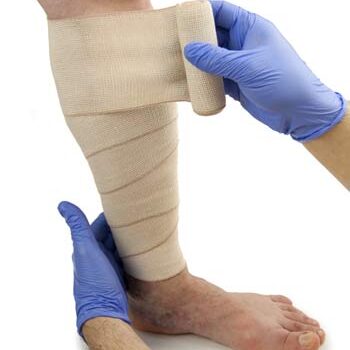
Lymphedema Management:
Lymphedema is a type of swelling that generally results from fluid buildup in response to such occurrences as injury, surgery, or a compromised immune system. It is common in people with neurologic conditions and following cancer treatment. It is often seen in the extremities and can affect people's mobility and function. Full lymphedema treatment includes hands-on soft tissue movement to encourage proper fluid dynamics, followed by compression therapy to enhance lymph function with activity. Self-treatment techniques are also provided for patients to be independent with their edema management. Cindi is a Certified Lymphedema Therapist (CLT) and specializes in the management of these conditions.
Our goal is to make you FEEL BETTER and MOVE BETTER
LINKS
MS Society: http://www.nationalmssociety.org/Chapters/MNM
MS Foundation: http://www.msfocus.org/
National Parkinson Foundation: http://www.parkinson.org/
American Stroke Association: http://www.strokeassociation.org/STROKEORG/
American Physical Therapy Association (APTA): http://www.apta.org/
